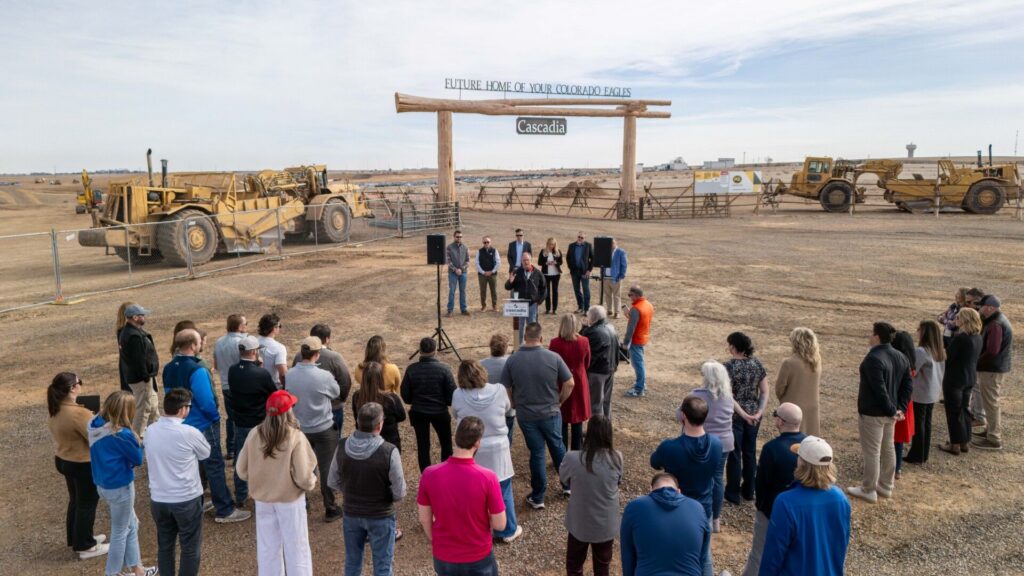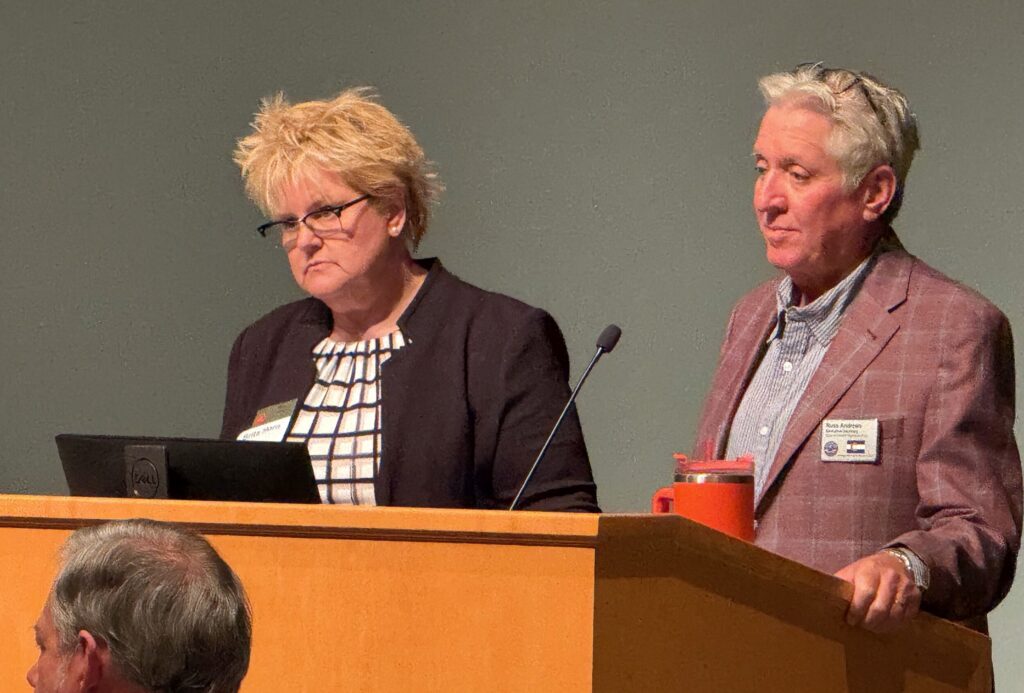YESTERYEAR: Legislature hits low with frivolous lobbyist ethics complaints
Twenty Years Ago This Week in The Colorado Statesman … In a continuation of the battle for welfare reform, Gov. Roy Romer outlined his reason for vetoing House Bill 97-1166.
“I am vetoing this bill because of one provision. That provision creates an irrational two-tiered system of welfare cash assistance benefits for our fellow citizens in Colorado who fall on hard times and need some short-term help to get back on their feet. That provision would allow for so-called ‘pilot-projects’ that would permit counties to be exempted from providing a minimum cash benefit to families.”
Romer went on to say; “Take the pilot program out, and I’ll sign it.”
In an effort to appease Romer, the state Senate started the process of creating a bill he might sign, Senate Bill 97-120, in an effort to avert the need for a special session.
House Speaker Chuck Berry, R-Colorado Springs, said he was looking at a compromise that would have all counties offering a package of benefits that would be equal in value — but not necessarily cash.
A cash allowance is necessary, Romer said, because “all families need cash” to pay for such things as rent, diapers and toilet-paper. “They need to learn how to handle cash if they are to become self-reliant.”
Meanwhile, Berry was a staunch advocate of giving maximum flexibility to counties to set their own welfare benefits.
The Senate Health, Environment, Welfare and Institutions (HEWI) Committee received SB 120, which had waited in the wings in case of a veto of Berry’s HB 1196. Sen. Mike Coffman, R-Aurora, lead sponsor of SB 120 and co-sponsor of HB 1196, substituted the conference committee report — minus the controversial pilot program.
Romer wanted a single, statewide standard of benefits for all counties, and said he might sign SB 120. If something were to change, however, Romer said he might veto it again, and call a special session to get a welfare reform package passed before the July 31 deadline.
Berry could try for an override of Romer’s veto, which would take a two-thirds vote of the Republican controlled House and Senate. Final house passage of HB 1196 was 42-21 with three Democrats voting for it and two Republicans absent.
Another bill Romer wasn’t pleased with was the so-called “family cap” which said women on welfare wouldn’t get any more payments if they have another child. The bill by Rep. Martha Kreutz, R-Littleton, passed the Senate on a straight party line, 19-15 vote. It prohibited the $76 per month payments for new babies, but allowed counties to make exceptions in emergency cases.
… Ten Years Ago … No one inside the Capitol — particularly in the lobby — was particularly comfortable during the unfolding of quite a fracas over ethics rules — specifically Joint Rule 36. And that ethics rule was being outright abused according to statehouse veteran Michael Beasley, who was far from alone in his view of the situation.
“I fear the ethics complaints will be used as a weapon to blunt opposition or support,” said Beasley who at the time was heading up lobbying efforts for Xcel Energy.
Beasley was referring to two ethics complaints filed independently — one after another — against two different lobbyists for their allegedly attempting to influence legislators by deceit. The two legislators in question were William Mutch, the executive director of pro-business organization Colorado Concern and Colorado Education Association lobbyist Lynn Mason.
In a hearing early in the week, Colorado Concern Chairman Rick Sapkin had distanced himself and his organization of top business leaders and CEOs from the actions of Mutch, testifying before a joint ethics panel at the state Capitol about Mutch’s ordering a barrage of allegedly misleading robocalls to be placed in March to residents in five House districts.
“I did not have anything to do with the text of the calls,” Sapkin told the three-member panel that would ultimately send its report to a legislative executive committee t0 determine Mutch’s fate.
But so what if he had? Many lobbyists and legislators were talking about the inappropriate nature of the complaint being filed in the first place, tying the hands of government affairs professionals from being able to do their jobs and gagging their rights to free speech.
Sapkin’s testimony mirrored that of others who worked closely with Mutch, with Colorado Association of Homebuilders lobbyist Steve Durham reportedly having called the robocall idea “dumb as dirt” before it was executed. Mutch refuted most of that testimony.
House Minority Leader Mike May, R-Parker, said, “We’ve probably opened up something that never should have been opened up and we are going to feel the effects of that in this building for a long time.” May was referring to Democrat state Rep. Alice Borodkin‘s, D-Denver, filing of the ethics complaint against Mutch.
May had ordered a retaliation to prove his point, urging state Rep. Kent Lambert, R-Colorado Springs, to file a similar complaint against Mason for sending an email to her CEA members, claiming in the message that Gov. Bill Ritter‘s tax plan for schools was not a tax increase. That claim was complete hogwash according to Lambert who obliged May’s suggestion, levying the Joint Rule 36 complaint against Mason and formally calling for a hearing.
The automated robo-dial phone calls from Colorado Concern allegedly warned those lucky listeners on the other end of the line that the Legislature might take action “that would cost you your home.” They went on to say that lawmakers were considering “a law that is being called the ‘Trial Lawyer Home Tax.’ This law will allow trial lawyers to collect fees that will be added to the amount you pay to purchase or rent your home … if it passes you may be able to be sued for an amount equal to or exceeding your home.”
At that time, no such bill had been introduced. But Rep. Jack Pommer, D-Boulder, did later carry HB 07-1338, which indeed would have made it much easier for homebuyers to force homebuilders to fix construction defects.
The complaints against Mason and Mutch were later dropped, but the tone for the remainder of the legislative session had already been set, and it was one that sent chills down the spines of many working under the gold dome. Lobbyists, in particular, cited growing concern that lawmakers would rope them into political debate by tarnishing them publicly with formal ethics complaints.
In other news, the surge in Iraq was working and Republicans shouldn’t be wary of talking about the war according to conservative talk radio host Hugh Hewitt. Those were two of the points he drove home at the Denver Republicans’ First Annual Teddy Roosevelt Reception.
The former president was remembered for his courage, said Rep. Ken Summers, R-Lakewood, during opening remarks at the University Club, “And it takes courage to be a Republican in Denver.”
Hewitt spoke about the need to win Colorado’s open Senate seat and said that Colorado, along with the state of Ohio, was “ground zero.”
“How do we recall the momentum of 2000, 2002 and 2004 after 2006,” Hewitt asked, “when we are all exhausted?”
For one, he suggested, Republicans needed to harness the energy found in the Democratic Party and to develop and train a cadre of people who work for the party every year.
Hewitt went on to speculate that “team Clinton” would end up as the Democratic Party’s nominee for president, with Barack Obama as the likely vice presidential nominee.











